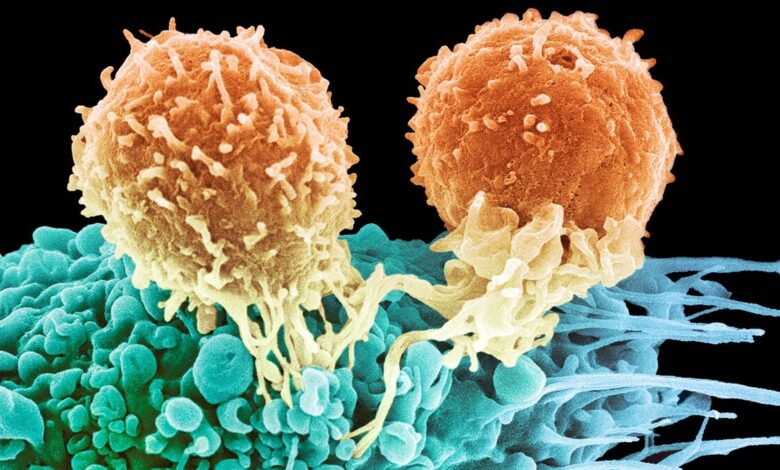
A colored scanning electron micrograph of two T lymphocyte cells (yellow) attached to a cancer cell (green). T lymphocytes are a type of white blood cell and a component of the body's immune system. They recognize a specific target—an antigen—on the surface of the cancer cell and bind to it. Once a T-cell has bound to the cancer cell it can signal for other immune cells to destroy it. Image Credit: Micrograph by Steve Gschmeissner, Science Photo Library
Health United StatesCancer Vaccines: Trials Look More Promising Than Ever
Cancer vaccines – both those that destroy cancer cells as well as those that prevent someone from developing cancer altogether – are in the works, and making progress.
Cancer vaccines are expected to potentially destroy cancer cells, stop tumors from growing or spreading, or stop cancer from coming back altogether. One preventative vaccine being tested by cancer immunologist Olivera Finn at the University of Pittsburg led to a 38 percent reduction in the recurrence of advanced polyps. “If you don’t get a new polyp, you’re not going to be at an increased risk of colon cancer,” Finn explains.
Though cancer vaccines have been in the works for years and failures have been frequent, the latest advancements in genome sequencing are allowing scientists to be able to design vaccines that are aimed at much more specific targets. This new form of cancer vaccine research is still in its infancy, but early results from clinical trials against a variety of cancers look encouraging, according to Nina Bhardwaj, a hematology and medical oncology expert at the Icahn School of Medicine at Mount Sinai in New York.



